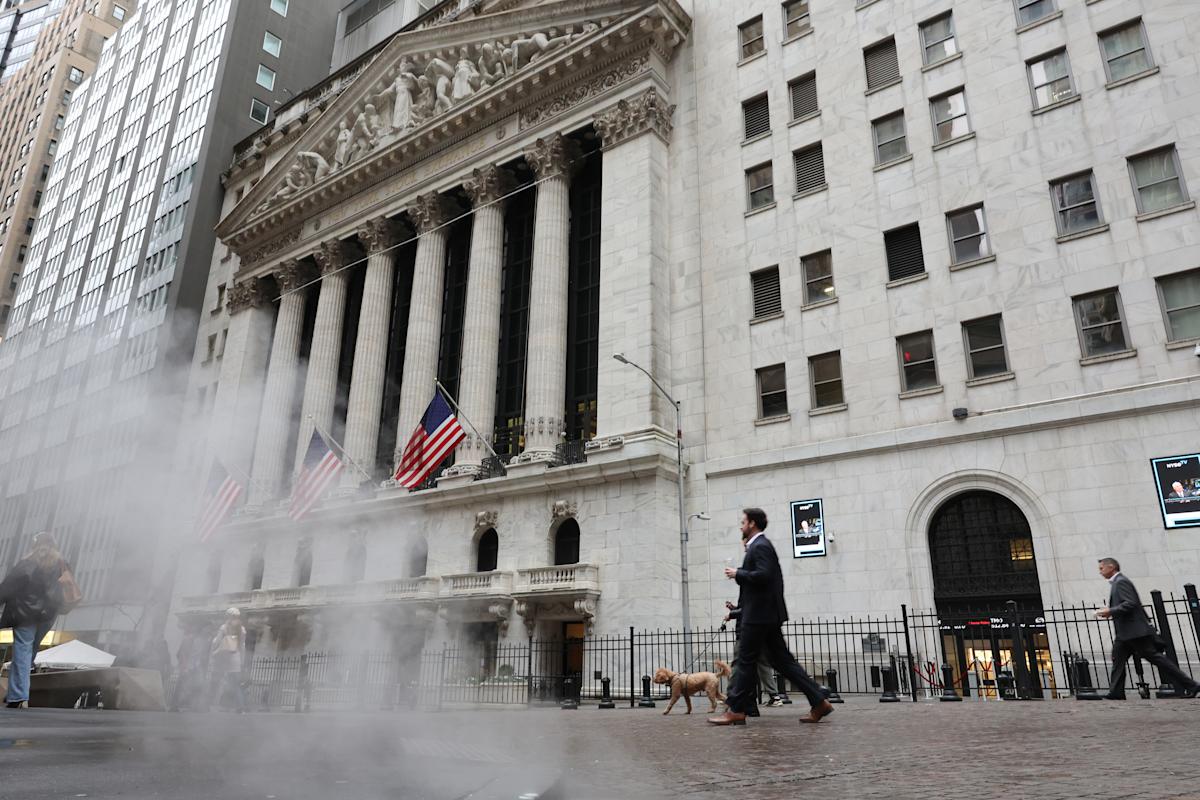The stock market experienced a downturn today, with the Dow Jones Industrial Average taking a significant hit. Several factors contributed to this decline, including escalating tensions in the US-China trade war and growing concerns about the stability of regional banks. Investors are closely monitoring corporate earnings reports amid this volatile environment, seeking insights into the overall health of the economy.
This article will explore the key drivers behind today’s stock market performance, with a particular focus on the impact of regional bank issues and the ongoing trade disputes. We will also examine how different sectors responded to these challenges, providing a comprehensive overview of the day’s events and their potential implications for the future.
Regional Bank Woes Weigh on Market Sentiment
Concerns about the health of regional banks played a significant role in today’s market decline. Shares of several regional banks plummeted after reports of loan losses and credit quality issues surfaced. This development has sparked fears about the stability of the broader financial system, leading investors to seek safer investment options such as government bonds and gold.
Zions Bancorporation (ZION) and Western Alliance (WAL) were among the hardest-hit, with their stock prices plunging following disclosures of loan problems. “These issues add to existing anxieties about the banking sector,” says analyst John Smith of MarketView Research. “Investors are now more cautious about the potential risks associated with regional banks.” This caution has contributed to a risk-off sentiment in the market, driving down overall stock prices.
US-China Trade War Adds to Market Uncertainty
The ongoing trade war between the United States and China continues to cast a shadow over the global economy. Recent statements from both countries have indicated that tensions remain high, with no immediate resolution in sight. This uncertainty has created a challenging environment for businesses, leading to concerns about supply chains, tariffs, and overall economic growth.
President Trump confirmed that trade tensions with China are ongoing, stating, “Well, you’re in one now.” Treasury Secretary Scott Bessent suggested that the trade truce between the two countries could be extended, offering a glimmer of hope. However, the overall impact of the trade war remains a significant concern for investors, contributing to market volatility.
Sector Performance: Tech Mixed, Financials Struggle
The tech sector experienced mixed performance today, with some companies managing to buck the overall market trend. Nvidia (NVDA) and other AI-related stocks saw gains, fueled by positive earnings reports from chip manufacturing giant TSMC. However, the Nasdaq Composite ultimately ended the day in negative territory, highlighting the challenges faced by the broader tech sector.
The financial sector, particularly regional banks, struggled significantly. The decline in regional bank stocks dragged down the broader market, as investors worried about the potential for further losses and instability in the financial system. Other sectors, such as energy and materials, also experienced declines amid the risk-off sentiment.
Flight to Safety: Bonds and Gold Gain
As investors sought safer havens, bond prices rose, and the 10-year Treasury yield fell below 4%. Gold also experienced a surge in demand, climbing above $4,300 per ounce. These trends indicate a strong preference for less risky assets during times of market uncertainty.
Analysts note that the decline in Treasury yields reflects growing concerns about the economic outlook. “The bond market is signaling that investors are worried about a potential slowdown,” says economist Sarah Johnson. “This is a classic flight-to-safety move, as investors seek the relative stability of government bonds.”
Economic Data Delays Due to Government Shutdown
The ongoing US government shutdown has further complicated the market situation by delaying the release of key economic data. This lack of information makes it more difficult for investors to assess the overall health of the economy and make informed decisions.
The shutdown, now in its third week, has deprived the Federal Reserve and Wall Street of crucial data on economic activity. This has led to increased uncertainty and speculation, contributing to market volatility. The shutdown is expected to continue into November, further delaying the release of important economic indicators.
Choppy Market Action Expected to Continue
Looking ahead, analysts expect the choppy market action to persist in the near term. The combination of trade war tensions, regional bank concerns, and the government shutdown creates a challenging environment for investors. Caution and careful risk management are advised during this period of uncertainty.
While some sectors, such as AI-related stocks, may continue to show resilience, the overall market outlook remains cautious. Investors will be closely watching for developments in the trade war, any signs of stabilization in the regional banking sector, and progress toward resolving the government shutdown.
Key Takeaways and Final Thoughts
Today’s stock market decline underscores the fragility of the current economic environment. The combination of trade war tensions, regional bank concerns, and the government shutdown has created a perfect storm of uncertainty, leading to a flight to safety among investors. While some sectors have shown resilience, the overall market outlook remains cautious.
As investors navigate this challenging landscape, it is essential to maintain a long-term perspective and focus on sound risk management principles. Diversification, careful analysis, and a willingness to adapt to changing conditions will be key to success in the months ahead.

Leave a Reply